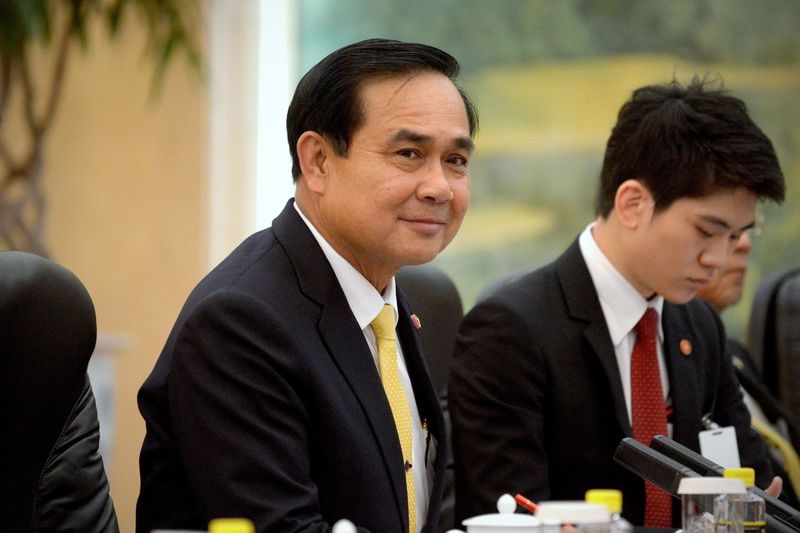By Alisa Tang
BANGKOK (Thomson Reuters Foundation) - Thai Prime Minister Prayuth Chan-ocha has vowed to crackdown on human trafficking in the sex trade and fishing industry in 2015 and punish any public officials involved after international criticism of Thailand's failure to tackle the crime.
Prayuth, an army general who took power in a coup in May, said he would implement a raft of measures to stop human trade in prostitution, child trafficking, forced begging and in the fishing industry.
He called for legal action against anyone involved to be expedited, in particular cases against government officials.
The move comes after the U.S. State Department in June named Thailand as one of the world's worst centres for human trafficking, saying it was "not making significant efforts" and was a source, destination and transit country for forced labour.
The State Department said most victims of trafficking in Thailand are from neighbouring countries and forced, coerced, or defrauded into labour, with "tens of thousands" exploited in the commercial sex trade, on fishing boats or as domestic servants.
A statement from the Thai government said the prime minister held a meeting last week to set out the challenges ahead including protecting victims and witnesses, working with the private sector and other organisations, and raising awareness.
"Discussions sought to increase the effectiveness of human trafficking prevention and suppression measures so as to yield tangible results in the first phase, or within one year," said the government statement.
"The Prime Minister also instructed concerned agencies to look out for officials suspected of being involved with illegal immigration and human trafficking and if caught to swiftly and resolutely proceed with legal procedures against them."
Thai police and officials last month reported that fishermen in southern Thailand were converting their boats to carry humans as the smuggling of Rohingya Muslims fleeing persecution in Myanmar had become so lucrative.
Prayuth will head a committee on human trafficking that will be divided into five sub-committees focussed on the fishing industry, child labour, forced and migrant workers, women's issues, and legal affairs and public relations.
Each committee will submit a plan of action to Prayuth by Jan. 7 and then update him with monthly progress reports.
The prime minister called for prompt action on legal cases involving human trafficking, saying all agencies should expedite procedures "efficiently, fairly and transparently, in particular cases involving government officials".
"The Prime Minister also called for agencies to enforce the law and pursue investigations to reach influential figures and criminal masterminds," the statement said.
Prayuth outlined plans for a campaign to publicise a hotline to report suspected cases of human trafficking and corruption.

While numbers of people trafficked are hard to know, a global slavery index by Australia human rights group Walk Free Foundation estimates almost 36 million people were living as slaves, trafficked into brothels, forced into manual labour, victims of debt bondage or born into servitude.
(Editing by Belinda Goldsmith)